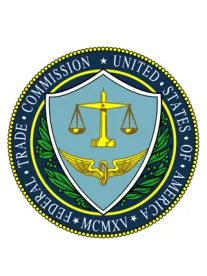In a 4–1 vote, the Federal Trade Commission (FTC) has issued its long-awaited Statement of Enforcement Principles outlining the Commission’s approach to “unfair methods of competition” prohibited by Section 5 of the Federal Trade Commission Act (FTCA) but not necessarily by the Sherman or Clayton Act. The statement is brief, and those awaiting the type of detailed policy statement that the FTC previously issued in connection with its deception and unfairness advertising enforcement will be disappointed. The policy outlines three central concepts framing when the Commission will decide to challenge an act or practice as an unfair method of competition in violation of Section 5 on a standalone basis:
-
the Commission will be guided by the public policy underlying the antitrust laws, namely, the promotion of consumer welfare;
-
the act or practice will be evaluated under a framework similar to the rule of reason, that is, an act or practice challenged by the Commission must cause, or be likely to cause, harm to competition or the competitive process, taking into account any associated cognizable efficiencies and business justifications; and
-
the Commission is less likely to challenge an act or practice as an unfair method of competition on a standalone basis if enforcement of the Sherman or Clayton Act is sufficient to address the competitive harm arising from the act or practice.
In comments announcing the principles, Chairwoman Edith Ramirez reiterated her prior support for a common-law approach to the development of Section 5 doctrine. Acknowledging that the principles are “concise,” she nevertheless stressed that was because those widely-used antitrust concepts, like “consumer welfare,” “rule of reason,” “harm to competition” and “cognizable efficiencies” “derive their content from 125 years of precedent under the Sherman and Clayton Acts, and that precedent will information Commission analysis under Section 5 as well.”
Commissioner Maureen Ohlhausen dissented, saying the policy statement was too abbreviated in substance and process for her to support it. In particular, she criticized the majority for failing to address case law, including instances where courts failed to support FTC action. Expressing concern about the potential expansive application of the policy, she stated:
I would prefer that any Section 5 policy statement be put out for public comment before adoption and include, among other things: (1) a substantial harm requirement; (2) a disproportionate harm test; (3) a stricter standard for pursuing conduct already addressed by the antitrust laws; (4) a commitment to minimize FTC-DOJ conflict; (5) reliance on robust economic evidence on the practice at issue and exploration of available non-enforcement tools prior to taking any enforcement action; and (6) a commitment generally to avoid pursuing the same conduct as both an unfair method of competition and an unfair or deceptive act or practice.
Time will tell if the policy statement becomes the basis for more expansive enforcement action, and how courts will react. Given the brevity of the Statement, future actions by the Commission may better define the current Commission’s views on the meaning of “consumer welfare” and “harm to competition,” particularly whether these terms mean anything other than the concepts as used under the Sherman and Clayton Acts, as opposed to the FTCA.




 />i
/>i

